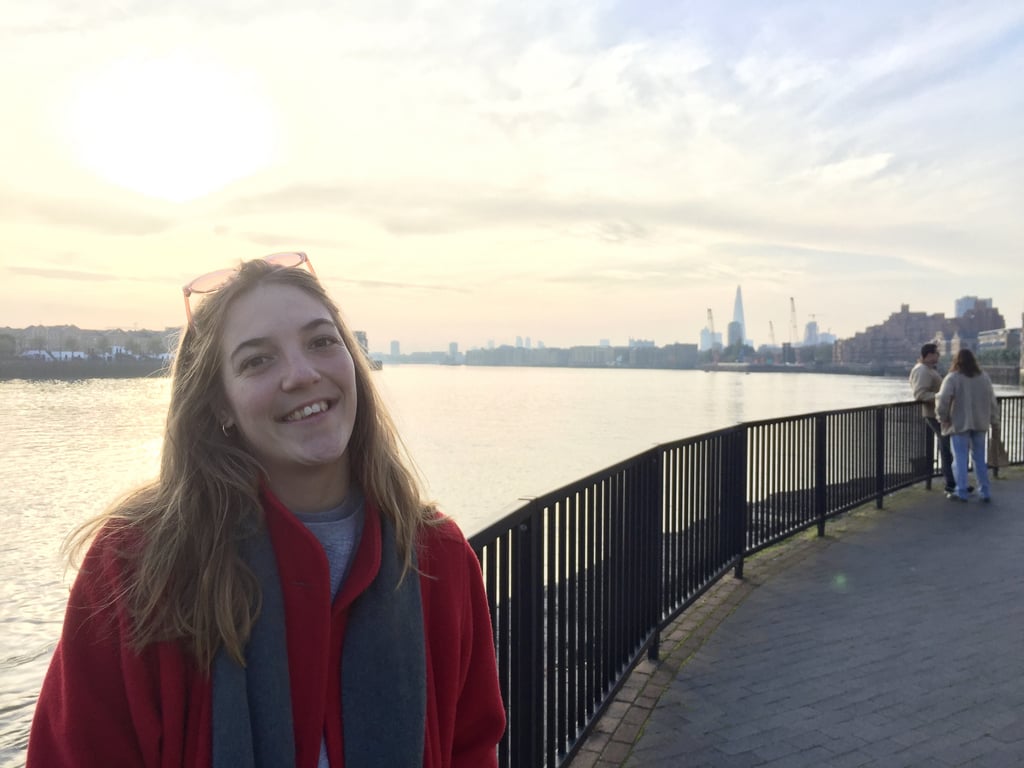Sigrid Duekilde is doing her MSc Anthropology, Environment and Development with UCL Anthropology Department this academic year. She is also one of the first CRIS students from this cohort to set up a research agreement with a community partner. If you’re wondering how to develop your research collaboration with CRIS, read her story to find out more!

Please describe what you’ve been doing to set up your collaboration?
It started in December when I contacted CRIS for the first time - I knew I wanted a collaboration and I was very open about the topic. In January, I found different organisations and emailed them to Anne, who then set up that first contact. And then Feedback—the organisation I'm working with—got back to me and we set up an initial meeting with them, me and Anne. We emailed back and forth for around six weeks, exchanging ideas until we landed on something which worked for both sides.
Once we decided on the topic we had another meeting with my supervisor and a new person from Feedback. Since then, we’ve finalised all the contracts: the research agreement and a data collection and sharing agreement. We agreed on a meeting once a month at least or as necessary. So, in total so far we’ve had two meetings and a ton of emails!
How much was your supervisor involved in this stage and how important (or not) was this involvement?
I have had my supervisor assigned since mid-January and I kept her updated about everything, but she wasn’t part of the collaboration yet at that point. It was only when I could see that I’m arriving at the research topic with the organisation that she started being copied in in the emails. She was in the initial meeting with Feedback and she was very involved and supportive, emphasising everything I said. She is also going to be in the next meeting.
think it’s a great thing because, firstly, this reassures me that my project is living up to the academic demands. Secondly, from Feedback’s perspective, having my lecturer behind me adds strength to my argument.
How easy was it to arrive at a research topic or question that suited you and also your organisation?
The short answer is it was not.
It was difficult to agree on a research topic as at first they wanted me to do quantitative research or literature review, while I had to adjust it to fit the anthropological framework. It took a long time to reach an understanding and it was actually my supervisor who stepped in in the last meeting and explained what exactly anthropology can contribute.
The back and forth emailing was also very stressful for me because I didn’t have any sense of security around the research collaboration; everything could still change. They only replied to me once a week and the ideas kept changing. I really had to adapt a lot there. I have been keeping a journal just to keep track of the process - it’s going to be quite interesting to read!
What has been most exciting part of this process so far?
The project management aspect of it. Keeping track of different stakeholders and getting everyone on the same page, which has also been frightening because if they weren't on the same page, then I wouldn't have a dissertation and I would have to come up with something new. So I was really invested in that and I really enjoy reaching out, emailing and trying to understand all sides to align them to my own benefit.
What has been the most daunting or stressful?
Not knowing where to start reading or what to prepare. Again, my supervisor has been really great and she said I had done so much work setting this collaboration up and thinking it all through, but I have a feeling that I haven't read anything yet. Every time I started I just couldn't continue because I didn't know if the topic will be the same next week or in two weeks time.
So, not knowing what to prepare for and therefore not being able to start preparing for the dissertation, when I felt like everyone else was starting to read for the literature review, was the most frustrating and that is why I just wanted for things to settle.
What are your hopes for the collaboration?
I hope that the research will actually lead to policy recommendations. That way my project will have had an impact in the world, which is what I wanted all along. This is exactly the reason why I signed up for CRIS: I wanted to do something that wasn't just a dissertation I could put on the shelf and no one, besides the person marking it, would read it. I wanted something that would reach a wider public in some way. I feel like that's very ambitious for a master's dissertation, but I hope if I keep managing it well Feedback will keep being as engaged as they have been in the past few weeks, and help me reach people I want to talk to.